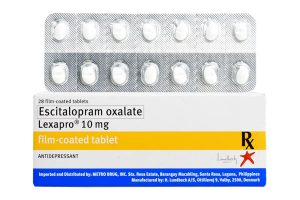An infection is one of the most prevalent conditions associated with a sore throat. A bacterial or viral infection can cause inflammation in the back of the throat, which can cause swelling and pain. Antibiotics can effectively reduce this swelling and pain by killing bacteria or preventing their growth. This blog post will discuss using antibiotics for sore throat. Read on to know more.
Types of antibiotics
There are different types of antibiotics. Understanding these different types is one of the key points to knowing how they work, interactions, and other necessary warnings and precautions to take note of.
Chemotherapy
This is the term for treatment with drugs that interfere with the growth of cells and tissues. The most common form of chemo is a drug called a beta-lactamase inhibitor. This antibiotic stops bacteria from making proteins in which beta-lactamase is coded. Beta-lactamase inhibitors are typically used to treat penicillin-resistant infections. Still, they can also be very effective against many other types of bacteria.
Tetracyclines
These antibiotics are typically among the oldest types of antibiotics still prescribed to patients. This type of drug is noted for being effective against a wide range of infections, including bacterial throat diseases. It is also known for causing very little digestive upset as compared to other antibiotics.
Cephalosporins
This is another class of antibiotic drugs capable of killing Gram-positive and Gram-negative bacterial infections. These antibiotics work in oral and intravenous forms.
Aminoglycosides
These are a class of antibiotics capable of treating several different bacterial infections. They can be administered as an injection or as an oral solution. This antibiotic is primarily used to treat pneumonia or severe ear infections. Unfortunately, it does have some notable side effects, including (but not limited to) kidney and hearing damage. Therefore, it is typically only used when other forms of antibiotics do not show effectiveness.
Polymyxins
These are specific antibiotics used to treat serious infections affecting the heart, lungs, and kidneys. This type of antibiotic is typically only used in extreme cases. This is because some common side effects include kidney damage.
Antibiotics for sore throat: What to know
Untreated strep throat can lead to several more serious conditions that could lead to hospitalization or even death. Therefore, treating a sore throat can eliminate other health conditions. This is especially true when treating bacterial infections.
Treating bacterial infections that lead to strep throat can increase the length of time for which the antibiotic will be effective. Fortunately, this is often still effective as long as it is taken immediately after the infection occurs or following a rapid strep test.
The following antibiotics are recommended by the American Academy of Pediatrics (AAP) for children and adults who have a sore throat:
Macrolides (such as azithromycin): These can be used for adults and children older than 8 years.
Cephalosporins (such as cefuroxime): These can be used for children and adults older than six.
Penicillins (such as amoxicillin): This antibiotic is recommended only for those allergic to the above antibiotics. However, they cannot use erythromycin or clindamycin either.
Trimethoprim-sulfamethoxazole (Bactrim or Septra): This is only recommended for children and adults who cannot use the above antibiotics because of an allergy to any kind of beta-lactam antibiotic.
Because of the risk for severe allergic reactions, antibiotics are typically only given to those with a higher chance of having a bacterial infection because they are older or have another illness that could cause a reaction. Antibiotics are also primarily given to children with bacterial infections but could lead to severe complications if left untreated.

Alternative treatments
Here’s a list of alternative treatments for strep throat:
Gargling
This treatment involves gurgling with warm salt water. This typically reduces swelling and can relieve pain in the throat. Still, it may not eliminate any bacteria or viruses causing the infection. However, it is a straightforward form of treatment that can be done at home without a strep test.
Over-the-counter pain relievers
This is another form of treatment that can be done at home to reduce pain from strep throat. Examples include Tylenol, Ibuprofen, and aspirin.
Antibiotics in liquid form
These are usually only recommended for very young children because of their small stomachs and difficulty swallowing capsules. Examples include neomycin, amoxicillin, ampicillin, and Augmentin.
Cold or hot packs
These can be used to reduce pain from strep throat by applying heat or cold to the back of the throat.
Causes of a sore throat
Streptococcus pyogenes
This causes more than 5 million cases of sore throat in the United States every year. It is typically transmitted through person-to-person contact. However, this type of bacteria can also be responsible for many other serious illnesses, and it also seems to be able to cause rheumatic fever.
Epstein-Barr virus (EBV)
Most people with this virus don’t know they have it because it doesn’t usually cause symptoms. However, this virus can also be responsible for mononucleosis and several other more severe illnesses. This virus is typically transmitted through saliva, which means that the majority of sore throat conditions caused by this virus are spread. However, if someone with mono kisses someone else who is not their partner, or if they touch their nose or mouth after kissing their partner, the EBV can spread from one person to the other.
Herpes simplex virus (HSV)
This virus causes cold sores but can also be responsible for other illnesses, including keratitis and encephalitis. It is transmitted from one person to the other through open sores or skin-to-skin contact. In some rare cases, it might be possible for the HSV to be spread by kissing.
Viruses
These are typically responsible for many cases of sore throats, but no bacteria have been found in them yet. Examples include the influenza virus, parainfluenza, adenovirus, and coxsackievirus.
Exposure to virus-carrying animals
This can be responsible for several different staph infections. Examples include those caused by cowpox and bovine viral diarrhea viruses, and herpes viruses carried by cats, dogs, and horses.
Bacteria
These bacteria are typically responsible for very few cases of strep throat compared to other causes. These include staphylococcus and streptococcus. Typically, these bacteria are often responsible for deep throat infections. Still, they can also cause many problems in other areas of the body.
Be careful when taking painkillers for a sore throat, as they can cause further harm to the throat. Painkillers for a sore throat include cough syrups, over-the-counter painkillers, and prescription painkillers.
Coughing is the natural way to clear the throat after swallowing, and it should not be suppressed.
However, if someone starts coughing up blood or vomiting, they should not ignore it. This usually indicates that something else is going on in the body.
For example:
- A respiratory infection (such as pneumonia) can cause a person to cough up blood.
- Menstrual blood can cause a person to cough up blood.
- Constipation can cause blood to be accidentally coughed up from the back of the throat, and there may not be any other symptoms.
- An injury or a foreign object stuck in the throat can also result in coughing up blood.
Here are a few things that people with a sore throat should not do
Avoid smoking, as smoking can make coughing worse, and it can also irritate the throat.
Avoid alcoholic drinks because these can also cause the throat to feel even worse.
Avoid foods with a lot of strong spices or hot chilies because this can also irritate the throat. Most strep throats are typically caused by a viral infection that lasts between 2 and 4 days. It is possible to take prescription painkillers, antibiotics, or gargle with warm salt water to treat sore throat symptoms.
Antibiotics can also be used to prevent complications in those who are more likely to experience bacterial infections. Gargling with warm salt water, over-the-counter painkillers, or antihistamines may relieve some symptoms of strep throat. Lastly, cold or hot packs can ease the pain of strep throat.
Antibiotics for Sore Throat: Warnings and Precautions
People who take antibiotics for any type of infection may be at risk of developing a health condition called ” antibiotic-associated diarrhea (AAD) .”AAD is similar to food poisoning. It can cause diarrhea that may last more than 48 hours in people who have taken antibiotics for an infection. Women who are pregnant should be careful about taking antibiotics and other medications that use antibiotics.
Individuals with thrush should not take antibiotics, as this can worsen the condition.
They should also avoid drinking alcohol or caffeine, which can irritate the throat and worsen the symptoms.
A deficiency in vitamin D causes rickets, often seen in children who fail to drink milk regularly.
A deficiency in vitamin C causes scurvy, often seen in people who lack fruits and vegetables in their diets.
A sore throat is an inflammation of the throat that is not caused by any bacteria or virus. Colds often cause sore throat, which can also be caused by hay fever and sinusitis.
A sore throat, fever, malodorous breath, and tonsillitis may result from a streptococcus infection.
Sore throats caused by streptococcus infection commonly go away within two weeks unless they are particularly severe.
Pseudomonas infection results from an infection with a bacterium called pseudomonas aeruginosa in the dried droppings of birds and some animals.
Sinus infections can cause sore throats, which are common in individuals with allergies.
Strep throat may be caused by streptococcus bacteria such as staph aureus or staphylococcus.
Strep throat is most commonly seen in children and adults aged 40 or older.
Strep throats are not always severe, but they can be a sign of cancer. Untreated strep throat can cause other severe infections like scarlet fever, and rheumatic fever, among others.
Strep throat can be caused by several factors such as smoking, consumption of alcoholic beverages and spicy foods, and consumption of hot liquid, such as pus formation and abdominal diseases.
Strep throat can also be caused by several factors, including prolonged exposure to cold, hunger, poor oral hygiene, poor air quality in the home or office, which is also referred to as sick building syndrome, and several other factors.
Sore throats are also commonly caused by bacterial and viral infections. Many viruses can cause sore throats, including the common cold virus, Epstein-Barr virus, the herpes simplex virus, and the influenza virus.
Sore throats can be caused by several factors, including coughing that is done forcibly, injury to the throat bone or trachea, and cancers such as oral cavity cancer.
A sore throat is also commonly caused by bacteria such as streptococcus bacteria, staphylococcus bacteria, and pseudomonas aeruginosa bacteria that are present in dried droppings of birds and some animals.
The most common way to treat an infection related to a sore throat is through antibiotics. These antibiotics kill or prevent bacteria from growing, making patients less likely to develop more severe conditions in their throats or throughout their bodies. The doctor recommends different types of antibiotics for this purpose.
Some antibiotics are recommended for children and adults. In contrast, others are recommended only for adults or children after a certain age. This is due to their potential side effects on the human body, including kidney damage and hearing loss.
Antibiotics typically have some adverse side effects as well. Therefore, this form of treatment is typically only used when other ways of treatment would have severe complications if left untreated. However, all antibiotics have some effect on the human body, so this is not always a true statement. The most widespread side effects of antibiotics are related to the kidneys. This is because antibiotics kill bacteria that can cause kidney damage if left untreated.
Medications like acetaminophen and ibuprofen can ease the pain you get from a sore throat, making it easier for people to deal with it throughout the day. These medications also help to reduce inflammation that is related to sore throats. While these medications are not specifically designed to treat a sore throat, they can make it easier for people to deal with the pain associated with a sore throat.
Conclusion
Antibiotics can effectively prevent the growth of bacteria and viruses located in the back of the throat. However, using antibiotics for sore throat is not recommended despite personal stories. This is because the discomfort of the sore throat does not last long, and antibiotics do not treat other symptoms that may accompany this condition, such as rheumatic fever or congestion.





